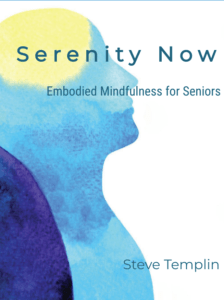The highly sensitive person (HSP) is more vulnerable to the growing epidemic of stress-induced chronic pain and illness than those with a less sensitive nervous system.
On the other hand, the HSP has a distinct advantage when it comes to resolving stress-induced pain and illness, which I’ll talk more about later in this article.
The salient point here is that there’s an abundance of stress-induced pain and illness for which conventional medicine has few answers, aside from symptomatic treatments. What’s missing in approaches that offer symptomatic relief only is that they ignore the stress-induced brain circuitry that’s causing the symptoms.
The best treatment for these stress-induced, brain-based issues involves awareness training, for which the highly sensitive person is ideally suited. Awareness training resets the neurological control centers that control chronic pain and illness.
Frequently, when these individuals learn of the highly sensitive person research they’re relieved to finally understand what makes them so different and what they can do about it.
Are You or Someone You Love a Highly Sensitive Person?
Around 15-20% of human beings have highly sensitive nervous systems that make them more vulnerable to stress-induced chronic pain, physical or emotional, and illness. Anyone is vulnerable to stress-induced illness, but HSP’s are even more vulnerable.
I’m aware of the growing research around highly sensitive people. I’m also personally aware of the physical and emotional challenges this misunderstood minority faces because I’m highly sensitive myself.
This increase in sensitivity means that you experience life more deeply. Your brain processes more sensory information leading you to feel and think more deeply and intensely than the remaining 80% of the population.
Traits common to the highly sensitive person (HSP) include: being sensitive to subtleties, being overly sensitive to one’s emotions and the emotions of others, being empathetic, being overly caring for others, often to your own detriment, being a perfectionist and being too self-critical, being overly sensitive to criticism from others, and being more easily overstimulated or overwhelmed and needing more downtime to recover.
Your increased sensitivity can trigger the stress-induced brain circuitry that’s responsible for much chronic physical and emotional pain, and many other chronic health conditions.
Conventional medicine treats the symptoms but ignores the neurological roots of these stress-induced issues.
Fortunately, this neurological circuitry can be reset with knowledge and self-awareness or self-regulation skills. The purpose of this article is to give the Highly Sensitive Person the insight, hope, and the confidence they need for healing.
Sensitivity is an Advantage in Self-Healing … and in Life!
Your nervous system is designed to heal you.
The key activator when it comes to self-healing is the awareness of feelings and sensations. You have to get out of your head to heal. Feelings and sensations are the direct experience of energy in your body.
Noticing feelings and sensations is very different from living in your head and only thinking. Brain imaging studies along with neurofeedback research both confirm that the non-judgmental experience of bodily felt sensations and feelings creates the neurological order that supports healing.
Learning how to simply feel feelings balances your left and right brain hemispheres, organizes your autonomic nervous system, and synchronizes coherent brainwaves across the surface of your cerebral cortex.
This enhanced neurological balance reduces or eliminates the neurological influence of stress and trauma which is reflected in more ideal biochemistry, mood, and behavior.
The HSP’s sensitivity and tendency to experience life more deeply are a boon to self-healing and wholeness.
The reduction or elimination of physical or emotional pain isn’t the only benefit of learning self-regulation skills.
Those same skills, while often eliminating illness, also create the neurological order and flow that allows the HSP to more fully realize their true gifts and creative potential.
The Heart of Self-Regulation Skills
Here’s the first skill that I share with all patients. It’s called Quick Coherence and comes from the HeartMath Institute.
Step 1. Focus your attention in the area of the heart. Imagine your breath is flowing in and out of your heart or chest area, breathing a little slower and deeper than usual.
Suggestion: Inhale 5 seconds, exhale 5 seconds (or whatever rhythm is comfortable).
Step 2. Make a sincere attempt to experience a regenerative feeling such as appreciation or care for someone or something in your life.
Suggestion: Try to re-experience the feeling you have for someone you love, a pet, a special place, an accomplishment, etc., or focus on a feeling of calm or ease.
If you feel that you are a highly sensitive person you may have experienced being mistreated, unappreciated, and misunderstood.
Now, with greater awareness and understanding of your uniqueness you’re in a position to heal more confidently and to reclaim your innate talents.


 Steve is a retired Doctor of Oriental Medicine, Acupuncture Physician, and HeartMath Trauma-Sensitive Certified Practitioner with over 35 years of clinical experience in the fields of Energy Medicine, Energy Psychology, and Biofeedback.
Steve is a retired Doctor of Oriental Medicine, Acupuncture Physician, and HeartMath Trauma-Sensitive Certified Practitioner with over 35 years of clinical experience in the fields of Energy Medicine, Energy Psychology, and Biofeedback. 